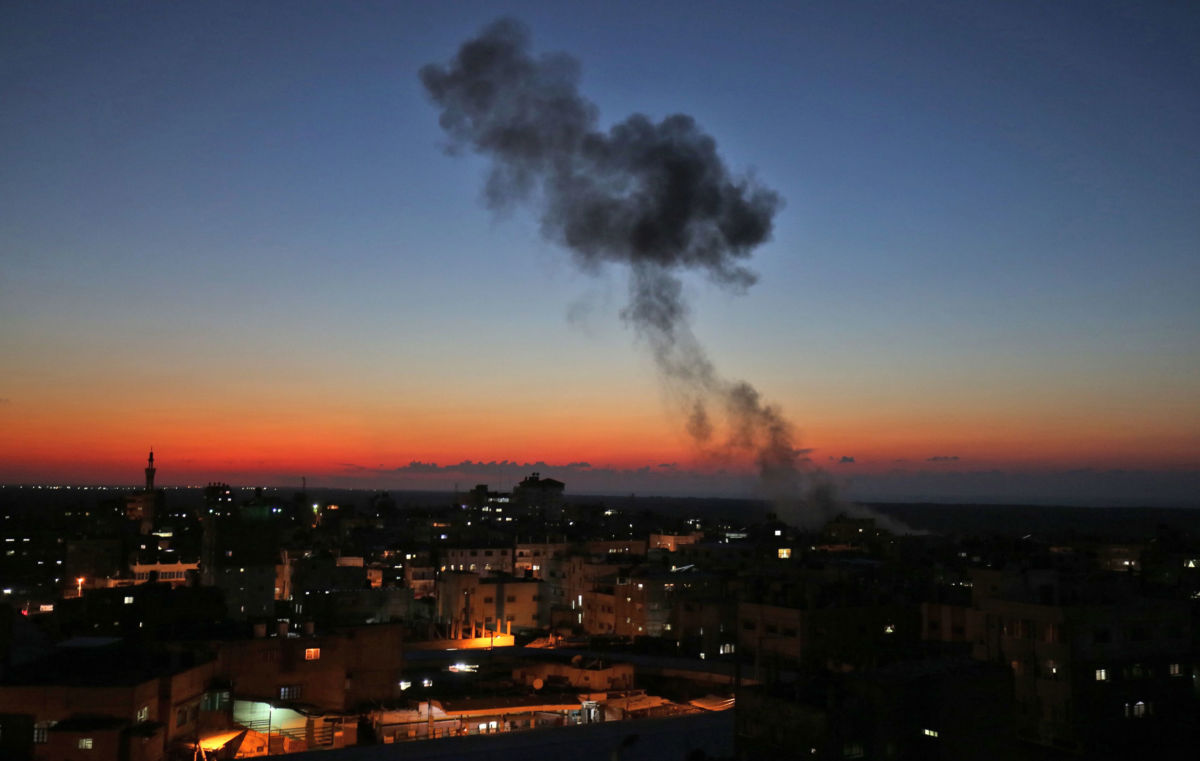Just hours after Israeli Prime Minister Benjamin Netanyahu insisted — despite the abundance of evidence to the contrary — that he wants to “avoid” military conflict with the Palestinians, a unit of Israeli soldiers flagrantly violated a ceasefire agreement Sunday night by invading the occupied Gaza Strip and killing at least seven Palestinians before fleeing under the cover of airstrikes.
According to Al Jazeera, an Israeli special forces team entered Gaza late Sunday in a civilian vehicle and proceeded to shoot and kill one Hamas commander in what Gaza officials denounced as an assassination and a “cowardly” escalation of tensions.
Six more Palestinians and one Israeli soldier were later killed after a firefight, which prompted the Israeli unit to call in airstrikes for cover to escape. One Palestinian witness said Gaza was slammed with as many as 40 airstrikes in less than an hour as the Israeli team fled the besieged Gaza Strip, which is in the midst of a severe humanitarian crisis due to decades of brutal Israeli occupation.
“Imagine if Palestinians crossed into Israel and killed [seven] Israelis, all hell would break loose but Palestinians are expected to just accept this,” Yousef Munayyer, executive director of the US Campaign for Palestinian Rights, wrote on Twitter.
Israel is once again looking to instigate a war on Gaza. Just this morning Netanyahu said he wanted “calm” but Israeli military conducts strikes on Gaza breaking cease-fire.
— (((YousefMunayyer))) (@YousefMunayyer) November 11, 2018
In the last 48 hours Israel facilitated the entry of millions in cash to Gaza for the supposed purpose of avoiding a crisis and all the while was planning an assassination operation aimed at the exact opposite purpose.
— (((YousefMunayyer))) (@YousefMunayyer) November 11, 2018
Israel insisted that its Sunday night raid and severe escalation was nothing more than an intelligence mission gone awry — an explanation that was rejected by Palestinians and described by one commentator as “deeply embarrassing.”
“Whatever it was, it’s a reminder that Israel goes in and out of Gaza as it pleases. We all know what happens to Palestinians who as much as go near the fence,” noted Israeli-American journalist Mairav Zonszein, alluding to the Israeli military’s indiscriminate massacre of Palestinian protestors along the border fence separating Israel and the occupied Gaza Strip.
Photos of Israel’s latest bombardment of Gaza and its aftermath began to circulate on social media Monday morning.
Israeli special forces entered #Gaza Strip and executed an assassination operation against Palestinians. Until now, 4 Palestinians reported killed.
There’re clashes between the infiltrated spec force & Palestinian resistance. Warplanes are shelling.#GazaUnderAttack pic.twitter.com/8j5uO3f0x0— Bahaa.Shammala 🇵🇸 Gaza ✌ (@palbahaa) November 11, 2018
Pray for me and for all people in #Gaza
Israeli aircrafts still roaring over our heads. I hope I can sleep well!#GazaUnderAttack pic.twitter.com/IRy6W2fL9E— Motasem A Dalloul (@AbujomaaGaza) November 11, 2018
Photos of the damage caused by Israeli fire last night:https://t.co/H5Kk7xnNz9https://t.co/VscoKHEtOuhttps://t.co/CCp0EURArU pic.twitter.com/xnL3w5YFHj
— Ben White (@benabyad) November 12, 2018
Media that fights fascism
Truthout is funded almost entirely by readers — that’s why we can speak truth to power and cut against the mainstream narrative. But independent journalists at Truthout face mounting political repression under Trump.
We rely on your support to survive McCarthyist censorship. Please make a tax-deductible one-time or monthly donation.
